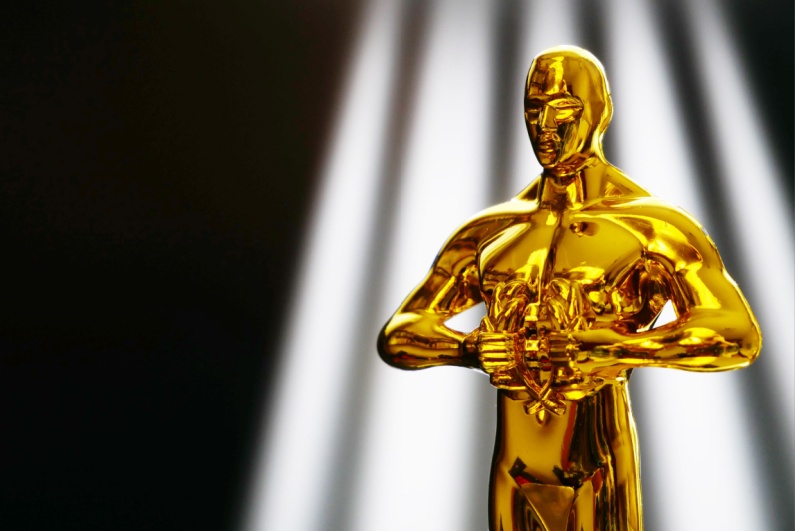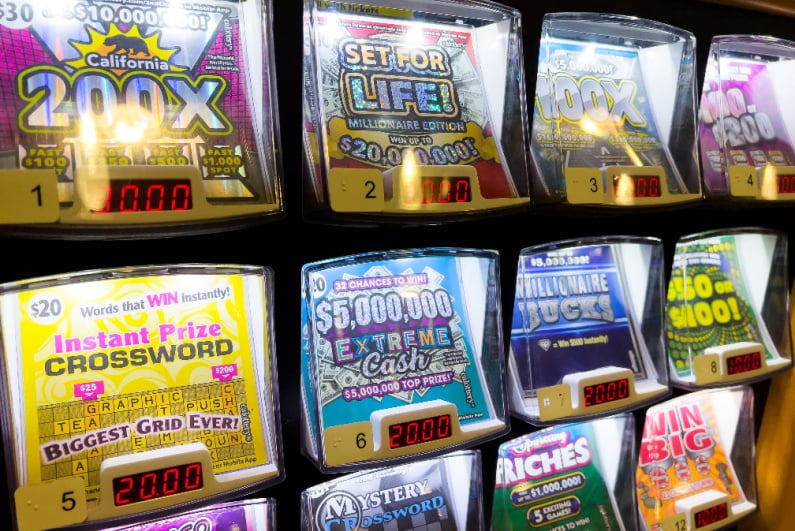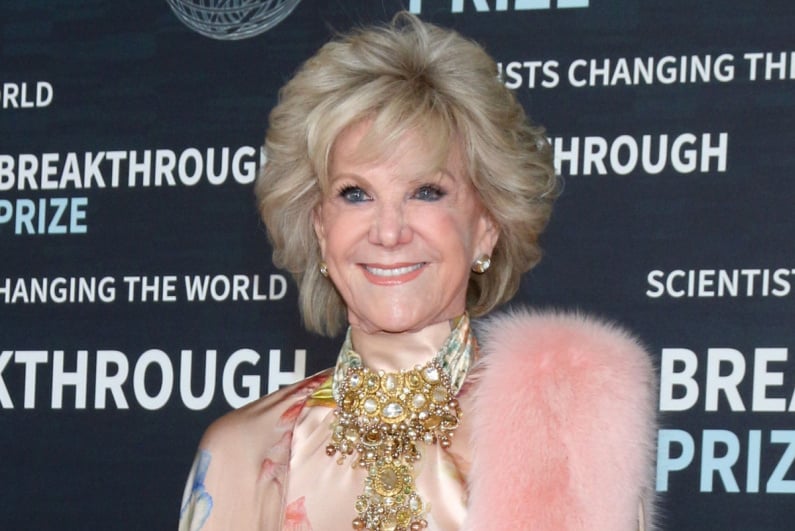For fans of the Oscars, the most exciting moments at the Academy Awards occur when something unexpected happens. Sure, a year like the recent 2024 ceremony, where Oppenheimer took the top prizes as expected, is satisfying for fans of the film, but isn’t it more exciting when things go unexpectedly awry?
upsets do inspire rage, bewilderment, and awe for both viewers at home and inside awards voting bodies
Who could forget the now-infamous snafu of 2017 when Faye Dunaway made the mistake of announcing La La Land as the recipient of Best Picture when the award actually went to indie underdog Moonlight? Chaos, amusingly and unforgettably, ensued. And while, by and large, the Oscars are usually not quite that dramatic, upsets do inspire rage, bewilderment, and awe for both viewers at home and inside awards voting bodies. For example, Shakespeare in Love winning over Saving Private Ryan back in 1999 is still, to this day, looked back on by many with comic embarrassment.
However, some Oscars upsets are more than welcomed within an antiquated institution that could always use some shaking up: case in point, The Shape of Water’s win in 2018, and when Parasite became the first non-English language film to win the night’s top prize.
The biggest upsets
To determine the biggest Best Picture underdog winners in Oscars history, VegasSlotsOnline looked at betting odds data from Sports Odds History for all Best Picture-nominated films dating back to 1974. The winners were then isolated and ranked by their odds to win, spotlighting the 10 that had the worst chance going into the awards ceremony.
Read on to see which films were the most surprising Best Picture winners, beating the odds and cementing their place in history.
#10. The Shape of Water (2017)
– Director: Guillermo del Toro
– Odds: +167
– IMDb user rating: 7.3
– Metascore: 87
– Run time: 123 minutes
Alberto E. Rodriguez // Getty Images
A film about a woman falling in love and having an intimate relationship with an anthropomorphic amphibian-man doesn’t exactly scream Oscar winner, and yet that’s exactly what happened back in 2018. Guillermo del Toro’s dark fantasy romance follows a lonely mute custodian (Sally Hawkins) at a top-secret government lab who cultivates a bond with a creature (Doug Jones) who has been captured and is being experimented on in the 1960s. Ultimately, she must work to save him from his demise at the hands of a ruthless colonel (Michael Shannon).
It became the second fantasy film to win Best Picture
An incredibly beautiful, unique, if also undeniably universal, love story of acceptance and connection, the film received critical and audience acclaim, so its nomination for Best Picture at the Academy Awards was more than deserved. However, stiff competition from films with timely social commentary—like Three Billboards Outside Ebbing, Missouri and Get Out—made the film’s top prize win all the more surprising. It became the second fantasy film to win Best Picture, following The Lord of the Rings: The Return of the King.
#9. Parasite (2019)
– Director: Bong Joon Ho
– Odds: +173
– IMDb user rating: 8.5
– Metascore: 97
– Run time: 132 minutes
Rachel Luna // Getty Images
The Parasite victory at the 2020 Oscars was an unexpected, but welcomed, surprise that year. Bong Joon-Ho’s Korean-language darkly comedic thriller made history by snagging both Best International Feature Film and Best Picture, becoming the first film to do so. The years leading up to this win were marked by a concerted effort to confront issues of racial and gender disparities within the film industry, and awarding the industry’s top prize to a Korean film was seen as a much-needed step in the right direction.
The film centers on the working-class Kim family, who infiltrate the wealthy Park family by taking on a number of household service jobs in order to make as much money off them as possible—but their plan develops a wrinkle when they discover a dark secret lurking in the Park family’s basement.
the front-runners were considered to be Parasite and the World War I drama 1917
At the 2020 Oscars, Parasite was up against a number of heavy hitters, such as Jojo Rabbit, The Irishman, Once Upon a Time… in Hollywood, and Little Women. However, the front-runners were considered to be Parasite and the World War I drama 1917, the latter being the more Academy-friendly film—no pesky subtitles to have to read in order to understand the story. In the end, however, reading comprehension prevailed.
#7. Million Dollar Baby (2004) (tie)
– Director: Clint Eastwood
– Odds: +200
– IMDb user rating: 8.1
– Metascore: 86
– Run time: 132 minutes
Frank Micelotta // Getty Images
A veteran boxing trainer (Clint Eastwood) in LA doesn’t let anyone get too close to him until he reluctantly takes on the task of coaching a female boxing hopeful named Maggie (Hilary Swank). In the end, their time together yields a meaningful bond in a tragic story that managed to sway critics and Academy voters, win at the box office, and take the top prize at the 2005 Academy Awards.
Eastwood’s film—which he directed, starred in, co-produced, and created the score for—received positive reviews and did well with audiences. Nevertheless, on Oscar night, it looked like Martin Scorsese’s Howard Hughes biopic The Aviator was going to clinch Oscar gold, as it had already taken home a healthy five awards before Best Picture was announced.
Million Dollar Baby, however, received some backlash from disability rights activists for the handling of the film’s ending, in which Maggie becomes paralyzed from the neck down after a serious injury and decides to end her life (implying the idea it’s better to be euthanized than live with a disability at all). Despite this, the film’s heart-string-tugging narrative won over the awards bodies and beat out the other four nominees, which, aside from The Aviator, included Sideways, Finding Neverland, and Ray.
#7. Crash (2004) (tie)
– Director: Paul Haggis
– Odds: +200
– IMDb user rating: 7.7
– Metascore: 66
– Run time: 112 minutes
ROBYN BECK/AFP // Getty Images
Several interconnected stories are woven together in this narrative that meditates on race, class, gender, and other timely social themes in writer-director Paul Haggis’s sprawling drama Crash. Although a hit at the box office and generally favorable among critics, Crash is now widely considered one of the least-deserving Best Picture Oscar wins of all time. The film’s Best Picture victory was considered an upset win back in 2006, up against the fan and critical favorite Brokeback Mountain, alongside Munich, Capote, and Good Night, and Good Luck at the 78th Academy Awards.
The backlash to the Crash win was swift and incisive
It was such a shocking win on the night of the ceremony that even presenter Jack Nicholson seemed rattled by the name that he had to read out as the Best Picture winner. Ultimately, Crash was considered by some to be the safe pick, as opposed to the groundbreaking depiction of a gay romance in Brokeback Mountain, which was directed by Taiwanese filmmaker Ang Lee. The backlash to the Crash win was swift and incisive and still lingers in the years since.
#6. Green Book (2018)
– Director: Peter Farrelly
– Odds: +210
– IMDb user rating: 8.2
– Metascore: 69
– Run time: 130 minutes
Frazer Harrison // Getty Images
Although it’s been criticized extensively for the way the narrative handles racial and social commentary, the feel-good Green Book from comedy director Peter Farrelly was nevertheless the big winner on the night of the 91st Academy Awards. The film chronicles the real-life relationship between Black jazz musician Don Shirley (Mahershala Ali) and his white driver Frank Vallelonga (Viggo Mortensen), who learn to bond despite their cultural and socioeconomic differences.
But the backlash to the Green Book win was the shot heard ’round Hollywood, with some feeling that Green Book went so far as to unseat Crash as the worst Best Picture winner of all time. The film received both positive and negative reviews, with criticism leveled towards its simplistic tackling of racial prejudice while focusing on the redemption arc of a racist white character.
the Academy seemed to have a steadfast opposition towards giving Best Picture to a streaming film
Many have gone on to speculate that perceived front-runner Roma, by Mexican director Alfonso Cuarón, was doomed from the start for the simple reason that the film was distributed by Netflix, and the Academy seemed to have a steadfast opposition towards giving Best Picture to a streaming film—at least until Apple TV+’s CODA won the top prize a few years later.
#4. The Godfather Part II (1974) (tie)
– Director: Francis Ford Coppola
– Odds: +300
– IMDb user rating: 9.0
– Metascore: 90
– Run time: 202 minutes
Michael Ochs Archives // Getty Images
In the sequel to Francis Ford Coppola’s classic crime film, the early life of Don Vito Corleone (Robert De Niro) is charted from his humble beginnings in Sicily to taking over Hell’s Kitchen, New York, as his journey is juxtaposed with the present-day issues facing his son, Michael (Al Pacino). The Godfather Part II is often referred to as the best of the trilogy, not to mention one of the best films of all time.
However, despite its Best Picture win at the 47th Academy Awards and its enduring legacy, the film was actually divisive among critics at the time of its release and was unable to surpass the first installment at the box office. That’s probably why it came as a bit of a surprise when The Godfather Part II was awarded the Academy’s top prize, beating out heavy-hitters Chinatown and The Conversation in particular—the latter of which, coincidentally, was also directed by Coppola. However, the film eventually received critical reevaluation and it has cemented its place in cinematic history.
#4. Annie Hall (1977) (tie)
– Director: Woody Allen
– Odds: +300
– IMDb user rating: 8.0
– Metascore: 92
– Run time: 93 minutes
Ron Galella Collection // Getty Images
It is rare that a comedy film is awarded Best Picture at the Oscars; among the nearly 100 ceremonies that have taken place, only about 20 films within the genre have ever taken the top prize, starting with It Happened One Night back in 1934. And while it’s perhaps rarer for a science fiction film to be in serious awards contention, when Woody Allen’s Annie Hall was up against the newly-minted phenomenon known as Star Wars in 1978, it was even more of a shocker that the comedy won.
it was really neck and neck between the thoughtful dramedy flick and George Lucas’ space opera
Allen’s film follows neurotic comedian Alvy Singer (Allen) as he looks back on what happened to his meaningful romantic relationship with a nightclub singer named Annie Hall (Diane Keaton). While it competed for Best Picture at the 50th Academy Awards against The Goodbye Girl, Julia, and The Turning Point, it was really neck and neck between the thoughtful dramedy flick and George Lucas’ space opera. While Time magazine dubbed Star Wars to be the movie of the year at the time, it was Annie Hall that took home all the top prizes at the Oscars, including Best Director and Best Original Screenplay, while Star Wars took home a handful of technical achievement awards.
#3. Spotlight (2015)
– Director: Tom McCarthy
– Odds: +350
– IMDb user rating: 8.1
– Metascore: 93
– Run time: 129 minutes
Kevin Winter // Getty Images
On the night of the Academy Awards in 2016, all eyes were looking at Alejandro González Iñárritu’s The Revenant to snag the award for Best Picture. The film was a dark, gripping tale of survival and sacrifice, featuring a lead role played brilliantly by Leonardo DiCaprio. DiCaprio was poised to finally earn the Best Actor Oscar that fans and critics had been hoping he’d win for years—and their wish came true; naturally, this seemed to only indicate the inevitable Best Picture win for his film.
The highly acclaimed Spotlight was a dark horse in the Best Picture race
Yet in a major upset, the film that ended up taking the night’s highest honor was the procedural crime drama Spotlight. The story followed the real-life journalism team at The Boston Globe who investigated numerous allegations against a local priest, only to reveal a sickening history of child sexual abuse and cover-ups throughout the Roman Catholic Church. The immediate fallout from the win was largely comprised of shock and confusion, as the other predicted front-runner for the award was Adam McKay’s The Big Short. The highly acclaimed Spotlight was a dark horse in the Best Picture race but was ultimately a rather safe choice and felt “more Oscar-y,” as Vox described it.
#2. Moonlight (2016)
– Director: Barry Jenkins
– Odds: +430
– IMDb user rating: 7.4
– Metascore: 99
– Run time: 111 minutes
Frazer Harrison // Getty Images
In one of the most memorable Oscars night gaffes of all time, legendary actors Warren Beatty and Faye Dunaway arrived on stage only to incorrectly read out the purported Best Picture winner—creating an awards snafu for the ages. Within mere moments of announcing Damien Chazelle’s musical La La Land as the night’s top prize winner, and allowing the La La Land cast and crew on the stage to accept their award, it was shockingly revealed that Beatty and Dunaway were handed the wrong envelope, and Moonlight was the rightful honoree of Best Picture at the 89th Academy Awards ceremony.
The moment has gone down as an infamous moment in Oscars history, although it was less a surprise that Moonlight won and more of a surprise as to exactly how the night went down. The film was a critical darling, and alongside La La Land, the two films were the front-runners of that year’s ceremony, though La La Land certainly had a stronger advantage. While La La Land was starting to receive some backlash as the awards season dragged on, it still would have made sense as a Best Picture winner: a safe, pleasing ode to Old Hollywood. Ultimately, Moonlight—a coming-of-age story about a gay Black man—taking the win was a major groundbreaking moment in the Academy’s history.
#1. Braveheart (1995)
– Director: Mel Gibson
– Odds: +600
– IMDb user rating: 8.3
– Metascore: 68
– Run time: 178 minutes
KIM KULISH/AFP // Getty Images
When the love of his life is brutally murdered, medieval Scotsman William Wallace (Mel Gibson) is spurred into action against the English rule, gathering his army and threatening to topple the throne of the king. Gibson’s epic historical war drama was received well among both critics and audiences, long before the actor and director got himself embroiled in hot water for a number of personal controversies.
Hollywood A-listers are suckers for a big, bloody historical epic
However, Braveheart winning Best Picture at the Oscars was a major upset in 1996 when it beat out Ron Howard’s Apollo 13 for Best Picture. Howard’s docudrama about the disaster of the Apollo 13 lunar mission was the front-runner of the evening and had actually surpassed Braveheart in terms of critical and box-office success. Among the other Best Picture nominees were Babe, The Postman, and Sense and Sensibility. While the Directors and Producers Guilds had designated Apollo 13 as their top film of the year, in the end, Hollywood A-listers are suckers for a big, bloody historical epic.




